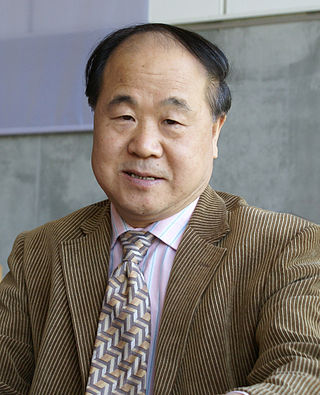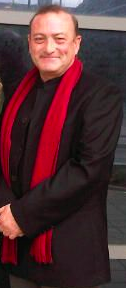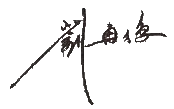Related Research Articles

Gao Xingjian is a Chinese émigré and later French naturalized novelist, playwright, critic, painter, photographer, film director, and translator who in 2000 was awarded the Nobel Prize in Literature "for an oeuvre of universal validity, bitter insights and linguistic ingenuity." He is also a noted translator, screenwriter, stage director, and a celebrated painter.

Buying a Fishing Rod for My Grandfather, also rendered from Chinese as A Fishing Rod for My Grandpa, is a 2004 collection of six short stories by the Chinese writer Gao Xingjian. All of the stories were originally written between 1983 and 1990. The stories were translated to English by Mabel Lee.

Guan Moye, better known by the pen name Mo Yan, is a Chinese novelist and short story writer. Donald Morrison of U.S. news magazine TIME referred to him as "one of the most famous, oft-banned and widely pirated of all Chinese writers", and Jim Leach called him the Chinese answer to Franz Kafka or Joseph Heller. In 2012, Mo was awarded the Nobel Prize in Literature for his work as a writer "who with hallucinatory realism merges folk tales, history and the contemporary".

Herta Müller is a Romanian-born German novelist, poet, essayist and recipient of the 2009 Nobel Prize in Literature. Born in Nițchidorf, Timiș County in Romania, her native language is German. Since the early 1990s, she has been internationally established, and her works have been translated into more than twenty languages.

David Manning Foster is an Australian novelist and scientist. He has written a range of satires on the theme of the decline of Western civilization, as well as producing short stories, poetry, essays, and a number of radio plays.

Gregory B. Lee is an academic, author, and broadcaster. Lee is Founding Professor of Chinese Studies at the University of St Andrews. He was until July 2020, Director of the French research Institute for Transtextual and Transcultural Studies based at Jean Moulin University Lyon 3. Lee was previously Chair Professor of Chinese and Transcultural Studies and Dean of the College of Liberal Arts and Social Sciences at the City University of Hong Kong. From 2007 to 2010 Lee was First Vice-President (Research) of Jean Moulin University Lyon 3. In 2010, Lee was made a Chevalier (Knight) in the French Order of Academic Palms. In 2011, he was elected Fellow of the Hong Kong Academy of the Humanities.

Josephine Riley is a British writer, translator, theatre actor, and schoolteacher. Dr. Riley has written and translated several books about theatre arts, especially Chinese theatre. She currently teaches film and drama at Munich International School in Germany.

Soul Mountain is a novel by Gao Xingjian. The novel is loosely based on the author's own journey into rural China, which was inspired by a false diagnosis of lung cancer. The novel is a part autobiographical, part fictional account of a man's journey to find the fabled mountain Lingshan. It is a combination of story fragments, travel accounts, unnamed characters, and folk poetry and legends. An English version translated by Mabel Lee was published in the United States on December 5, 2000.

Karen An-hwei Lee is an American poet.
One Man's Bible is a novel by Gao Xingjian published in 1999 and in English translation in 2003. Set during the Cultural Revolution, the novel stars an alter-ego of Gao who reflects on his previous experiences around the world. Throughout the book, the chapters alternate between the narrator describing his life during and after his time in China during the Cultural Revolution. He describes how he looks for freedom and how to retain that freedom.
The University of Washington Press is an American academic publishing house. The organization is a division of the University of Washington, based in Seattle. Although the division functions autonomously, they have worked to assist the university's efforts in support of the Burke Museum of Natural History and Culture, the Henry M. Jackson School of International Studies, and the Center for Innovation and Research in Graduate Education. Since 1915, they have published the works of first-time writers, including students, poets, and artists, along with authors known throughout the world for their work in the humanities, arts, and sciences.

Fiona Sze-Lorrain is a French musician, poet, literary translator, and editor.

Liu Zaifu is a Chinese author, poet, and professor in literature and the liberal arts. Liu is particularly well known for his work "Reflections on Dream of the Red Chamber", which analyzes the Chinese classic "Dream of the Red Chamber", but with Liu's personal viewpoints and philosophy. He has lectured at the University of Chicago, University of Colorado, University of Stockholm, and the City University of Hong Kong, where he served as an honorary professor in 2004.
Caroline Elizabeth Weber is an American author and fashion historian. She is a professor of French and Comparative Literature at Barnard College within Columbia University. Her book Proust's Duchess was a finalist for the 2019 Pulitzer Prize for Biography or Autobiography.
Professor Albert Richard ('Bertie') Davis (1924-1983) was born in Dorking and died in Sydney. The Chair of Oriental Studies at the University of Sydney for over a quarter-century, he was a major figure in the development of Asian Studies in Australia.
Wild Peony Press was a Sydney-based independent press, dedicated to fostering the better understanding of Asian cultures in English-speaking countries. Co-founded by Mabel Lee, Wild Peony Press was active between 1984 and 2009 and their work was hailed as " an important move against cultural parochialism" in Australia. From 1991, University of Hawai'i Press undertook international distribution. Initially publishing language textbooks, Wild Peony later focused on literature and culture, including the University of Sydney East Asian Series and World Literature Series. Wild Peony published literary anthologies, the autobiographies of Mitsuharu Kaneko, Liu Wei-ping and Stanley Hunt, a study of artist Wang Lan, poetry by Ouyang Yu, Zijie Pan and Subhash Jaireth, translations of Arakawa Toyozo, Junko Takamizawa, Jun'ichirō Tanizaki, Nishiwaki Junzaburo, Yi Chung-hwan, Kyunyeo, Xu Xing (writer), Yang Lian, Hong Ying and Zhai Yongming and papers from the conferences of the International Comparative Literature Association. Lee, a translator and friend of Gao Xingjian, used his ink paintings for several of the Wild Peony covers.
The A.R. Davis Memorial Lecture is held annually in commemoration of A.R. Davis, the Professor of Oriental Studies at the University of Sydney and a key figure in post-war Asian Studies in Australia. It is organised by the Australian Society for Asian Humanities and published in the Journal of the Society for Asian Humanities.

The 2012 Nobel Prize in Literature was awarded to the Chinese writer Mo Yan "who with hallucinatory realism merges folk tales, history and the contemporary." He is the second Chinese author to win the prize after the exiled Gao Xingjian.

The 2000 Nobel Prize in Literature was awarded to the Chinese émigré writer Gao Xingjian "for an æuvre of universal validity, bitter insights and linguistic ingenuity, which has opened new paths for the Chinese novel and drama." He is the first Chinese recipient of the prize followed by Mo Yan in 2012.
References
- ↑ Mark Feeney (13 October 2000). "Nobel in Literature Awarded to Chinese Dissident". The Boston Globe. Retrieved 13 June 2008.
- 1 2 Jane Sullivan (12 February 2005). "An Accent on Accuracy". The Age. Retrieved 28 January 2011.
- ↑ Cao Chang-Ching (2 February 2001). "Modern Form Can't Hide Bad Prose". Taipei Times. Retrieved 13 June 2008.
- ↑ Paul Gray (11 December 2000). "Lost in the Translation". Time. Archived from the original on 22 November 2010. Retrieved 28 January 2011.
- ↑ "Gao Xingjian: Aesthetics and Creation By Gao Xingjian". www.cambriapress.com.
- ↑ "Home - East Asian Languages and Civilizations". University of Pennsylvania - School of Arts & Sciences | School of Arts and Sciences - University of Pennsylvania. 26 January 2021. Retrieved 22 February 2021.